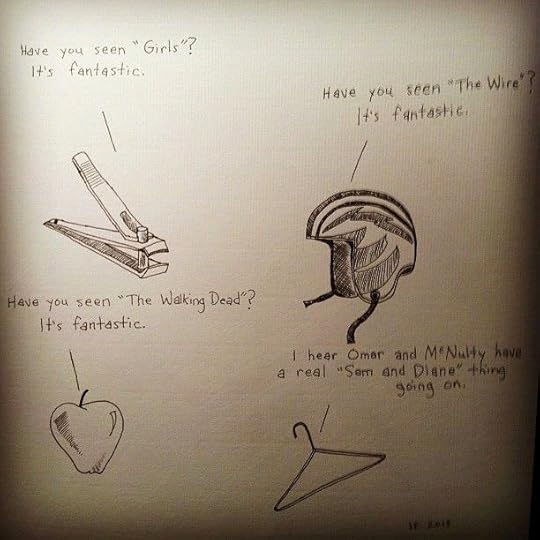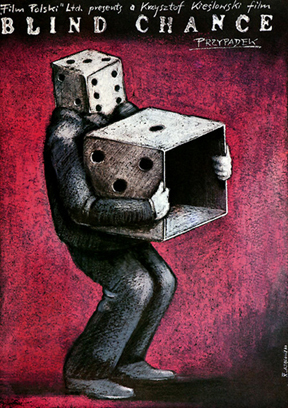Charles Martin's Blog, page 27
November 14, 2014
DNA Galleries vs. Oklahoma City Thunder: The Metro’s More Important Success Story?
Anniverskully 6
Opening 11 am-11 pm, Friday (11-14) and hanging throughout the month
DNA Galleries
1709 NW 16th St in Oklahoma City’s Plaza District
I am certain that Dylan and Amanda Bradway, owners of DNA Galleries, love the Oklahoma City Thunder and don’t relish a competition with the metro’s darling NBA team, but that won’t deter me because 1. It amuses me, 2. I think their similarities and differences serve a larger point on the future of our state, and 3. DNA is celebrating six years with a group art show opening tonight that features painted skulls.
So, in this corner:
DNA Galleries
BORN: 2008
BIO: A forward-leaning retail shop focusing on young, vital, and Okla-centric artwork. DNA is more indicative of what can be found on the West Coast where hip entrepreneurs with more guts than capital provide important platforms for emerging artists. The Bradways don’t just have a sharp eye for talent, but are also among the most unique and progressive artists in the state. The shop supplements traditional artwork sales with t-shirts, backpacks, longboards, installations, handcrafted soap, zines, jewelry, and more. This is the kind of shop that didn’t work in the old Oklahoma, but in our invigorated state that is drawing in more and more young professionals looking for cosmopolitan experiences, DNA has found its niche.
ROLE: DNA is the spiritual anchor of the thriving Plaza District with a monthly artwalk so successful that neighborhoods across the metro are scrambling to replicate. They are also involved in urban art projects such as a series of murals along Western Avenue which are giving our city’s historic retail hubs a chic edge. Perhaps DNA’s most important function is retraining the buying public to invest in locally-crafted art. Now with Collected Thread, Dig It, Blue Sage, Istvan,Tree and Leaf, and other retail shops popping up every year, the Plaza has become a critical outlet for emerging artists trying to build a career doing what they love where they live rather than having to move out of state.
And in this corner:
Oklahoma City Thunder (Formerly Seattle Supersonics)
REBORN: 2008
BIO: Blessed with young talent and a clever front office, the Thunder is the first major professional franchise to move to Oklahoma. Behind the Thunderbuddies, Kevin Durant and Russell Westbrook, OKC burst out from the cellar of the NBA to make the playoffs in just their second season since moving. They are now one of the most dominant presences in the Western Conference, advancing past the first round of the playoffs in each of the last four seasons and making the finals in 2011-12. This season is starting off rough due to injuries to Durant and Westbrook, but a solid bench has managed to squeak out a few victories early on to keep the Thunder tied for second in the Northwest Division. Once their roster is back to full strength, the Thunder are expected to climb the standings and compete for another deep playoff run.
ROLE: The acquisition of the Oklahoma City Thunder was a crowning moment for the state, verifying our place as a solid mid-level market. Not quite a hub yet, but OKC is far from the oil bust days where the city teetered on ghost town status. This young, vibrant basketball team that is perpetually in the championship mix makes for the perfect loudspeaker to hail the benefits of our quiet, friendly, but surprisingly affluent community. Much better than oil barons, at any rate.
WINNER: Okay, so this contest is blatant clickbait. I admit that. It’s not really fair to compare the two since both entities have done a lot to improve the image and community of Oklahoma. Also, they have benefited from one another. DNA’s line of Thunder t-shirts have helped the team add some shine to their brand, giving fans a wider range of unique designs to choose from aside from the often boring, NBA-approved, options (check out Bombs Away’s design). In return, the success of the Thunder has injected dollars into the DNA cash tills. They are both winning, really, but I’m not going to leave you with a non-answer. So, I’m declaring DNA as the City’s Most Important Success Story! Cue confetti cannons!
MY REASONING: It’s all about the underdog. The Thunder have the numbers. Their army of frenzied fans packing into Chesapeake Energy Arena for 44 games a season (plus playoffs) inject crazy money into the local economy. I get that, but the Thunder also benefits from some super duper deep pockets. DNA became an icon of the city’s art scene through ingenuity, taste, and an unwavering belief in the arts. The Bradways elevated their shop through clever curating, brand management, patience, and solid hiring including The Girlie Show pioneer Erin Merryweather. We all love the Thunder, but DNA’s six-year run as an innovator in the city’s retail landscape makes it my favorite underdog in Oklahoma City.



November 13, 2014
The Romance of Bigotry, or Judicial Adventures in Missing the Point
Right in the middle of my effusive joy about living in a country where my gay and lesbian friends can marry, the 6th Circuit Court of Appeals decided that the worst aspects of democracy, rather than the Constitution, ought to dictate what seems to be a clear-cut Constitutional issue. Judge Jeffrey Sutton, a George W. Bush appointee, wrote for the 2-judge majority:
I’m not sure it’s possible to write a worse sentence when the civil rights of citizens are at stake. First, the idea that it’s a new social issue is laughably false. One need only read the Satyricon, a Roman satire about a gay former gladiator, which was written sometime in the first century CE (most likely), to know that same-sex relationships are not new social issues. Most egregiously, however, Sutton would have us believe that a war novel or hero’s journey is playing out in front of us rather than a real-life tragedy wherein a hegemony that is decreasing in power and influence expresses their fear of their own demise by being petty and bigoted to the very end. Aside from a preference for a particular strain of theism, there is simply no compelling reason left to resist same-sex marriage. All other avenues of argument are vacuous or bigoted. Sutton continues:
“Better in this instance, we think, to allow change through the customary political processes, in which the people, gay and straight alike, become the heroes of their own stories by meeting each other not as adversaries in a court system but as fellow citizens seeking to resolve a new social issue in a fair-minded way.”
More on that nonsense below, but first, in all fairness to the 6th Circuit, the dissenting opinion, written by Judge Daughtrey, begins with two of the most accurately scathing lines in the history of jurisprudence:
“The author of the majority opinion has drafted what would make an engrossing TED Talk or, possibly, an introductory lecture in Political Philosophy. But as an appellate court decision, it wholly fails to grapple with the relevant constitutional question in this appeal: whether a state’s constitutional prohibition of same-sex marriage violates equal protection under the Fourteenth Amendment.”
In short, “the people” ought not be allowed to vote for an unconstitutional law, and as gay marriage bans seem to violate the 14th Amendment, it matters little what “the people” think. The process of categorizing a law or provision of a law as constitutional or unconstitutional is the responsibility of the judiciary, not “the people.” Judge Sutton’s idiotic romanticism vis-a-vis citizens resolving social issues in a “fair-minded” way ignores the reality that citizens have regularly voted for and supported injustice with respect to social issues. Judge Sutton is apparently unaware of Jim Crow, poll taxes, Dred Scott, the Fugitive Slave Act, Japanese internment camps, sundown towns, and a whole host of other social issues in which the hegemony, even in the guise of SCOTUS, decided against the best interests of entire classes of citizens.
The conservative myth of “activist judges” has become a common trope, but it coheres poorly with reality, and the worst decision in recent memory was made by activist justices who allowed corporate money to affect elections against the best interests of “the people.” There are times when judges must decide the constitutionality of a law without reference to the will of the people. The will of the people is never sovereign in a culture committed to laws based on justice. It is axiomatic that the will of the people is often nothing more than tyranny and prejudice masquerading as righteousness or tradition or respect for the law. Laws based on injustice ought not to be obeyed. In the American experience, this is clearly the lesson we were supposed to learn from Thoreau, Anthony, Stanton, Chavez, King, and others.
Now the 6th Circuit has officially made this an issue SCOTUS must consider. Their reasoning is, in the words of Judge Daughtrey, an appeal to vox populi, or a wait-and-see approach. That needs to be unpacked a bit. The voice of the people (vox populi) can often decide that a situation is not so urgent that it must be addressed immediately. According to the conservative worldview, social change should not come quickly; rather, it should be deliberate and well thought out, such that it becomes a wait-and-see approach in the sense that time and talk will fix things. Dr. King addressed the wait-and-see approach in his Letter from Birmingham Jail:
“For years now I have heard the word ‘Wait!’ It rings in the ear of every Negro with piercing familiarity. This ‘Wait’ has almost always meant ‘Never.’ We must come to see, with one of our distinguished jurists, that ‘justice too long delayed is justice denied.’”
Only those who are comfortable within the system can possibly think that “wait-and-see” is a good idea. Imagine telling the victims of slavery that we will wait until citizens work out this social issue in a fair-minded way. What if fair-minded ends up being the perpetuation of slavery? Why would the slave not want to be free today? Is it not fair because a judge with good sense calls injustice by its name? Is it only fair if “the people” get to decide whether or not to support the Constitution? And if they do not, then are we compelled to call it Democracy or the rule of law, however loathsome it may be? It is certain that the Founding Fathers–and, oh, the capitalization there–did not envision that the will of the people should enshrine injustice, and unless someone can tell me why gays and lesbians ought not be able to marry in a culture where all adult citizens share equal rights, how is it aught but injustice?
At this point, many will interject objections based on the will of God, but it will be the god they prefer. They will not say “my God” or “the God of (X Faith).” Rather, they will simply assert that it is God who is offended, as if it is an axiom that there is only one god or that god can be offended. Even assuming the axioms to be correct, they will then insist that their singular deity is the deity of record, such that the monotheists of other tribes are heretics or fools, and only the children of the deity of record, according to their own reckoning, have a proper understanding of the way of God. It is a powerful delusion or an arrogant fiction, but they will not recognize it as such.
And even if we allow that their tribe possesses the truth and their tribal deity is the sovereign lord of the universe, they will not be able to explain why even intra-tribally they cannot agree as to the actual words of God, nor the proper interpretation of those words. It is a preference for the “world as they wish it to be” dressed up as Truth, and the arbiters of this version of the truth see it as absolute and feel no obligation to justify the truthiness of their words; rather, they accept their version as gospel and believe the rest of us are blinded by sin, in the grasp of the devil, in rebellion against God, or willfully ignorant to the truth that is so obvious to them. Even as they can’t agree amongst themselves.
Setting aside that brief excursus, the matter at hand is what will happen when SCOTUS is forced to decide. A 5-4 split is the most likely outcome with Justice Anthony Kennedy as the swing vote. The utter disaster will be a 5-4 decision against marriage as a fundamental right and a deferring to the states to decide who among law-abiding, tax-paying citizens may marry. This will lead to a balkanization of American states into affirming and non-affirming areas, and the very Constitution that is meant to guarantee equal treatment for citizens from state to state will be abrogated where it most matters: equal rights for all citizens.
The sane decision would be 9-0 in favor of the 14th Amendment and the dignity of all people, but Scalia, Thomas, and Alito have seldom been concerned about such lofty matters. Rather, they amuse themselves by upholding the letter of the law and ignoring its spirit. They strain out gnats and swallow camels in their zeal to show that they understand the meaning of words in the narrowest sense, but manage to ignore the “weightier matters of the law,” like love, justice, and mercy. Honestly, we live in a country where the most conservative imagine they live in a country dedicated to Christian principles, even as they don’t recognize obvious opportunities to implement Christian principles, and, it’s fair to argue, they don’t know which principles are actually Christian. They are practitioners of civil religion, and like Dostoevsky’s Grand Inquisitor, they would not recognize their Lord were He to make an appearance in their day-to-day lives.
Finally, we must address one final argument against same-sex marriage, and it comes from those often self-identified “Libertarians” who assert that marriage is not the proper purview of government. While it is easy to agree that the government should not be involved in marriage, the simple fact is that the government is currently involved in marriage. The entanglements are manifold, including insurance, survivor benefits, hospital visitation, income taxes, etc. Unless and until all heterosexual couples are willing to divest themselves of the benefits attendant with marriage, including tax breaks, this is simply an argument of avoidance, which is to say, it avoids the larger questions in favor of a gigantic, convenient red herring.
The Romance of Bigotry, or Judicial Adventures in Missing the Point
Right in the middle of my effusive joy about living in a country where my gay and lesbian friends can marry, the 6th Circuit Court of Appeals decided that the worst aspects of democracy, rather than the Constitution, ought to dictate what seems to be a clear-cut Constitutional issue. Judge Jeffrey Sutton, a George W. Bush appointee, wrote for the 2-judge majority:
I’m not sure it’s possible to write a worse sentence when the civil rights of citizens are at stake. First, the idea that it’s a new social issue is laughably false. One need only read the Satyricon, a Roman satire about a gay former gladiator, which was written sometime in the first century CE (most likely), to know that same-sex relationships are not new social issues. Most egregiously, however, Sutton would have us believe that a war novel or hero’s journey is playing out in front of us rather than a real-life tragedy wherein a hegemony that is decreasing in power and influence expresses their fear of their own demise by being petty and bigoted to the very end. Aside from a preference for a particular strain of theism, there is simply no compelling reason left to resist same-sex marriage. All other avenues of argument are vacuous or bigoted. Sutton continues:
“Better in this instance, we think, to allow change through the customary political processes, in which the people, gay and straight alike, become the heroes of their own stories by meeting each other not as adversaries in a court system but as fellow citizens seeking to resolve a new social issue in a fair-minded way.”
More on that nonsense below, but first, in all fairness to the 6th Circuit, the dissenting opinion, written by Judge Daughtrey, begins with two of the most accurately scathing lines in the history of jurisprudence:
“The author of the majority opinion has drafted what would make an engrossing TED Talk or, possibly, an introductory lecture in Political Philosophy. But as an appellate court decision, it wholly fails to grapple with the relevant constitutional question in this appeal: whether a state’s constitutional prohibition of same-sex marriage violates equal protection under the Fourteenth Amendment.”
In short, “the people” ought not be allowed to vote for an unconstitutional law, and as gay marriage bans seem to violate the 14th Amendment, it matters little what “the people” think. The process of categorizing a law or provision of a law as constitutional or unconstitutional is the responsibility of the judiciary, not “the people.” Judge Sutton’s idiotic romanticism vis-a-vis citizens resolving social issues in a “fair-minded” way ignores the reality that citizens have regularly voted for and supported injustice with respect to social issues. Judge Sutton is apparently unaware of Jim Crow, poll taxes, Dred Scott, the Fugitive Slave Act, Japanese internment camps, sundown towns, and a whole host of other social issues in which the hegemony, even in the guise of SCOTUS, decided against the best interests of entire classes of citizens. The conservative myth of “activist judges” has become a common trope, but it coheres poorly with reality, and the worst decision in recent memory was made by activist justices who allowed corporate money to affect elections against the best interests of “the people.” There are times when judges must decide the constitutionality of a law without reference to the will of the people. The will of the people is never sovereign in a culture committed to laws based on justice. It is axiomatic that the will of the people is often nothing more than tyranny and prejudice masquerading as righteousness or tradition or respect for the law. Laws based on injustice ought not to be obeyed. In the American experience, this is clearly the lesson we were supposed to learn from Thoreau, Anthony, Stanton, Chavez, King, and others. Now the 6th Circuit has officially made this an issue SCOTUS must consider. Their reasoning is, in the words of Judge Daughtrey, an appeal to vox populi, or a wait-and-see approach. That needs to be unpacked a bit. The voice of the people (vox populi) can often decide that a situation is not so urgent that it must be addressed immediately. According to the conservative worldview, social change should not come quickly; rather, it should be deliberate and well thought out, such that it becomes a wait-and-see approach in the sense that time and talk will fix things. Dr. King addressed the wait-and-see approach in his Letter from Birmingham Jail:
“For years now I have heard the word ‘Wait!’ It rings in the ear of every Negro with piercing familiarity. This ‘Wait’ has almost always meant ‘Never.’ We must come to see, with one of our distinguished jurists, that ‘justice too long delayed is justice denied.’”
Only those who are comfortable within the system can possibly think that “wait-and-see” is a good idea. Imagine telling the victims of slavery that we will wait until citizens work out this social issue in a fair-minded way. What if fair-minded ends up being the perpetuation of slavery? Why would the slave not want to be free today? Is it not fair because a judge with good sense calls injustice by its name? Is it only fair if “the people” get to decide whether or not to support the Constitution? And if they do not, then are we compelled to call it Democracy or the rule of law, however loathsome it may be? It is certain that the Founding Fathers–and, oh, the capitalization there–did not envision that the will of the people should enshrine injustice, and unless someone can tell me why gays and lesbians ought not be able to marry in a culture where all adult citizens share equal rights, how is it aught but injustice? At this point, many will interject objections based on the will of God, but it will be the god they prefer. They will not say “my God” or “the God of (X Faith).” Rather, they will simply assert that it is God who is offended, as if it is an axiom that there is only one god or that god can be offended. Even assuming the axioms to be correct, they will then insist that their singular deity is the deity of record, such that the monotheists of other tribes are heretics or fools, and only the children of the deity of record, according to their own reckoning, have a proper understanding of the way of God. It is a powerful delusion or an arrogant fiction, but they will not recognize it as such. And even if we allow that their tribe possesses the truth and their tribal deity is the sovereign lord of the universe, they will not be able to explain why even intra-tribally they cannot agree as to the actual words of God, nor the proper interpretation of those words. It is a preference for the “world as they wish it to be” dressed up as Truth, and the arbiters of this version of the truth see it as absolute and feel no obligation to justify the truthiness of their words; rather, they accept their version as gospel and believe the rest of us are blinded by sin, in the grasp of the devil, in rebellion against God, or willfully ignorant to the truth that is so obvious to them. Even as they can’t agree amongst themselves. Setting aside that brief excursus, the matter at hand is what will happen when SCOTUS is forced to decide. A 5-4 split is the most likely outcome with Justice Anthony Kennedy as the swing vote. The utter disaster will be a 5-4 decision against marriage as a fundamental right and a deferring to the states to decide who among law-abiding, tax-paying citizens may marry. This will lead to a balkanization of American states into affirming and non-affirming areas, and the very Constitution that is meant to guarantee equal treatment for citizens from state to state will be abrogated where it most matters: equal rights for all citizens. The sane decision would be 9-0 in favor of the 14th Amendment and the dignity of all people, but Scalia, Thomas, and Alito have seldom been concerned about such lofty matters. Rather, they amuse themselves by upholding the letter of the law and ignoring its spirit. They strain out gnats and swallow camels in their zeal to show that they understand the meaning of words in the narrowest sense, but manage to ignore the “weightier matters of the law,” like love, justice, and mercy. Honestly, we live in a country where the most conservative imagine they live in a country dedicated to Christian principles, even as they don’t recognize obvious opportunities to implement Christian principles, and, it’s fair to argue, they don’t know which principles are actually Christian. They are practitioners of civil religion, and like Dostoevsky’s Grand Inquisitor, they would not recognize their Lord were He to make an appearance in their day-to-day lives. Finally, we must address one final argument against same-sex marriage, and it comes from those often self-identified “Libertarians” who assert that marriage is not the proper purview of government. While it is easy to agree that the government should not be involved in marriage, the simple fact is that the government is currently involved in marriage. The entanglements are manifold, including insurance, survivor benefits, hospital visitation, income taxes, etc. Unless and until all heterosexual couples are willing to divest themselves of the benefits attendant with marriage, including tax breaks, this is simply an argument of avoidance, which is to say, it avoids the larger questions in favor of a gigantic, convenient red herring.
November 12, 2014
X – The Lost Generation
Millennials are reading more than us. The Pew Research Center announced that “88% of Americans under 30 read a book in the past year, compared with 79% of those age 30 and older.” This shouldn’t be much of a surprise. This is the Harry Potter Generation. The Hunger Games Generation. The Millennials are a different breed from my brethren who grew up in shopping malls and arcades, pirating Skinemax, using tape recorders to record music off the radio and MTV. We were the first guinea pigs of the internet era. We watched the collapse of the Soviet Union as the world settled into the most peaceful era in human history.
No more great wars. Just a bunch of small, stupid ones. Though, I guess, the great ones were pretty stupid too.
It was and is an awkward thing to be in Generation X (born 1960′s-80′s). We started out ill-defined, hence the name, and our role never really took. The world changed too fast for us to ever settle in. I suppose that can be said of every generation since the industrial revolution, but we are the ones that straddled the dawn of the digital age. And poorly at that. The Millennials (born late 1980′s-2000′s) have the benefit of growing up in this revitalized world. They are The DIY, Small Business Owner Generation. The Great Recession Generation. The 911 Generation. The First Generation To Not Do As Well As Their Parents, but the deck was pretty stacked against them. We grew up spoiled in an ever-sprawling suburbia, they grew up amid ever-sprawling catastrophes. We are cynical about everything but still awed by the internet. They are cynical about the internet, but are voicing more optimism about their futures even as they attempt to join an under-paid workforce.
And they are reading more.
I don’t mean to condemn or condone Generation X, nor do I herald the Millennials as the saviors of Western Civilization and/or literature. Gen X was what we had to be. Raised to believe debt was a patriotic duty, reared during the conservative Morning in America, but awake for the explosion of Alternative everything in the 90′s. We accepted political correctness to be a necessary facet of civility, but still remember when dressing up as racial stereotypes for Halloween was no big deal. What a weird time to be alive.
The Boomers felt this alienation too, but they wore it like a brand. Owned it. Commercialized it.
Generation X seemed to have just shrugged our lives away. We went to war for a while, shrugged. Then wore flannel for a while, shrugged. Then listened to the Beastie Boys for a while, shrugged. Then downloaded everything on Napster for a while, shrugged.Then wore Tommy Hilfiger for a while, shrugged. Then went to war for a while longer, shrugged. Then watched our houses get foreclosed, shrugged.
Maybe that’s what it is, we never could figure out what the hell we were supposed to be. Some generations sweep in after sea changes and can get a clear read on what the world means. Some generations are there during the turmoil and just spin, spin, spin until the waves wash them back away. That’s not so bad, I suppose, being the unknowns, the lost. We made the mistakes. We are the older brothers of the Millennials, getting busted a few too many times for pot, rolling a few too many cars after a few too many drinks at a few too many bars. The Millennials see this, see how our priorities were just a damn mess and are determined to do it better. They’ve grown up in the digital age rather than just being adopted by it. They own it, but also don’t feel owned by it. That’s why they are abandoning the work force to go into business for themselves. That’s why they are leaving the suburbs and heading back downtown. That’s why they are in love with technology, but not hypnotized by it in the way that we are.
It helps that JK Rowling eased them to sleep every night when they were young, but it is more they feel comfortable in the chaos of the early 21st Century. We were stuck in the shadow of the Boomers who were stuck in the shadow of The Greatest Generation. But unlike our parents and grandparents, we were culturally open about the fact that we had no idea what the hell we were doing. An odd, jaded humility. Not much of a legacy, I suppose, but at least our kids are reading more.
November 10, 2014
The Wire
November 7, 2014
First Friday at Planet Dorshak
“Hirte der Wølfe”

Archival cold-press natural paper, available in 13×19″ and 8.5×11″. Dorshak will be on hand from 7-9 pm to talk about his process, sign copies of his prints and his debut graphic novella, The Story of Ivan A. Alexander.
Also, we will have music!

November 6, 2014
Martin Scorsese Presents: Masterpieces of Polish Cinema
November 6-16
Oklahoma City Museum of Art Noble Theater
415 Couch Drive in Oklahoma City
All Access Pas: $55 for Museum members | $70 for non-members
Single movie: Adults: $9, Seniors 62+: $7, College Students w/ID: $7, Members: $5
Okcmoa.com
Don’t think of this as sixteen Polish films you know nothing about, rather this is Martin Scorsese revealing to us some of his best magic tricks. The Oscar-winning director is an obsessive fan of cinema, proudly bearing his influences in his own films such as “The Departed”, “Raging Bull”, and “Goodfellas”. Masterpieces of Polish Cinema is touring nationwide and opens tonight at the Oklahoma City Museum of Art for an eleven-day run featuring movies hand-selected by Scorsese. The series gives a glimpse into the film industry that thrived, even from behind the Iron Curtain, and birthed many important filmmakers such as Roman Polanski and Krzysztof Kieślowski.
Mother Joan of the Angels (5:30 pm, November 8) was the standout of the movies I got to preview. About an exorcist battling against demons running rampant in the bodies of nuns, the movie is heavy on quiet fear, the unnerving tension that rises from a long, steady shot of a face mangled in terror. The greatest fireworks in film always happen within the face, something that mainstream horror often overlooks in favor of gore, fireballs, and high body counts.Jerzy Kawalerowicz’s expertly crafted thriller is stripped-down and low-fi, but beautiful, haunting, and personal. Lucyna Winnicka plays the title character with a shocking intensity, overwhelming the pious exorcist (a perfectly brittle Mieczyslaw Voit). Any fan of The Exorcist should make time to check out this film.
A Short Film About Killing (5 pm, November 16) is part of a grander series of movies made for television entitled The Decalogue. Kieślowski stunned international audiences and won famous admirers including Stanley Kubrick, who wrote the foreward for the published script. Each film examines a commandment and A Short Film About Killing portrays the emotional devastation wrought by murder, whether accidental, premeditated, or state-sponsored. Primarily a character study, the film takes its time in revealing how multiple storylines thread together, unmasking a killer to show the sad humanity underneath.
Cold War history buffs should definitely make time for Blind Chance (2 pm, November 16), a forking narrative about how a simple act can either lead a man into a high position within the Communist Party, into underground, anti-communist groups, or as an apolitical doctor just trying to do his job. Suppressed from 1981-1987 by Polish authorities, OKCMOA will be screening the movie with all but one of the scenes originally censored from the film. The one missing slice portrays the main character getting beaten by the police, but could not be salvaged. In its place is a title card and the sounds of the beating, which is actually more effective given the movie’s underlying message. My favorite element of the movie was a repeated camera technique that shifts mid-scene from first person to third person, a captivating way of gently unbalancing the viewer, bringing the audience full into a moment, then nudging them right back out. It is a technique that Mr. Scorsese has utilized a time or two.
The series also contains Oscar nominees like Pharoh (2 pm, November 8) and Man of Iron (7:30 pm, November 6), and groundbreaking arthouse films like Ashes and Diamonds (5:30 pm, November 7). There is a personal touch to Masterpieces of Polish Cinema that does make the series more interesting. Many notable films were passed up, including the censored anti-communist film Interrogation, in favor of more obscure selections that resonated more with Scorsese. It is like getting a chance to rifle through his front-room DVD selection, seeing the titles he wants you to see, mostly because he knows you don’t know them—yet.
For more information on what OKCMOA’s Noble Theater is up to, check out the blog for Film Curator Michael Anderson.
Love Pig
November 5, 2014
It’s Cool, Oklahoma Non-Voters, I’m Not Mad, Let’s Just Figure This Out.
If you didn’t vote on Tuesday, I’m not going to shame you. I understand, I really do. Living in Oklahoma can be very disheartening for progressives and moderates. Sectioning out time to swing by the polls is challenging when it feels like we are helpless against the political machines pulling us further and further to the right. This isn’t about people being lazy, it is about a climate that is disenfranchising rather than inspiring. Democracy is losing because too many of us have lost the faith. Only 40.7 of Oklahoma’s registered voters participated in our 2014 mid-term elections, meaning that a very unpopular governor only had to muster 459,788 votes out of 1,978,812 total registered voters to win. Those might seem like big numbers, but they really aren’t. Even a subtle cultural swing could cover the 100,000 vote gap between Joe Dorman and Mary Fallin. The votes were there to unseat the governor, but not the will. So this is where you and I need to talk, Oklahoma Non-Voters. I’m not mad at you, but I do need for us to figure this out together. We, the Oklahoma Voters, need your help so we can shape our state by the will of the majority, not the whims of a increasingly shrinking demographic of likely voters. I do acknowledge the problems holding you from the polls. There are bills to pay, kids to get to school, and millions of other tasks and distractions getting in the way. Time is hard to come by for the working middle class, but I want to help. And not just me, but a vast array of websites, both governmental and private, that will make your voting experience as efficient and hassle-free as possible. First off, Badvoter.org leapt onto the national scene this past year as a way to use public records to increase voter participation through shame. Yeah, I know, but you should still visit the site because it will offer you the chance to sign up for reminders to upcoming elections in your area. This is very crucial because the smaller, under-publicized contests are more important than you might realize. They contain school bonds, city council races, the types of elections with results that will directly affect your life and your community. I forget about these often, so getting a reminder the day before gives me time to prepare (which is little more than three minutes clicking around internet). In these small elections, your vote REALLY counts because turnout is abysmal. Don’t know who to vote for? Isidewith.com is a fun way to pick candidates based on issues. Don’t know your polling place? It happens, but you can go to Get To The Polls and enter your address or go to the Oklahoma State Election Board website and enter your name and birth date. If you haven’t registered, you can get paperwork at all kinds of places including the library and tag agencies. It can also be downloaded HERE.
DO NOT REGISTER INDEPENDENT!
In Oklahoma, this means you cannot vote in primaries, which are critical in the election process. You may hate Democrats and you may hate Republicans, but you should hate having your candidates picked for you even more. Until this process changes, registering independent mutes your democratic voice. It sucks, I know, but if all independents switched their registrations to one of the major parties, then showed up to vote in the primaries, the outlook of the general elections would be vastly different than what we saw this year. We need candidates picked by the majority of voters, not just the fringe. Finally, if time is tight, don’t rule out mail-in ballots or early voting! When we get to the presidential election, absentee ballots are great options because you can skip the long lines and also have plenty of time to research your vote. Early voting is also nice since you have the Thursday, Friday, and Saturday before an election to swing by the election board to cast your ballot. For those of you who voted for the first time on Tuesday, I am very sorry if the results have you disheartened, but please don’t give up on this state. Our demographics are changing, our culture is changing. Our voting patterns will, in time, change too. Keep registered, keep plugged into politics and talk to your non-voting friends. Don’t judge them, don’t shame them, but help them get invested in the political process. Don’t worry about the billions spent on television advertising, don’t worry about the negativity blasting out from media propaganda machines. It is the twenty-first century and your friends and family will be more swayed by your opinion and optimism than they will be by the marathon of attack ads spewing out months ahead of the election. Help them understand why their vote matters because it is one more voice added to a growing choir calling for change. Tuesday was not a failure, but a lesson that cynicism and lethargy are holding this state back. For 2016, build our voting team, get each other energized, then capture the future of this incredible state.
November 4, 2014
Who Cares That The Marines Are Leaving Afghanistan?
Previously published at http://UniformStories.com
The Marines are leaving Helmand Province.
Who cares?
No, seriously. Who cares?
Do the Marines care? I’m sure the individual Marines—those in units still left in the field—were counting down the days before they headed back home, hopefully for some leave time with family and friends before returning to the mind-numbing grind of garrison life. Then again, some of them were just shuffled around the country to other missions.
But do the Marines care? That is, the Marine Corps? Or, for that matter, the Department of Defense?
A quick trip to Marines.com’s news tab today revealed not a single story about the loss of over 350 Marines in combat in Helmand since 2001, or about the soon-to-be-disasterous handover of Camp Leatherneck to the Afghan National Army, which, while light years ahead of the Afghan National Police in terms of discipline, equipment, and ability, still suffers from gross systematic problems that will cripple any sense of long-term success beyond the Kandak level.
No, Marines.com wants to highlight training events, feel-good stories about reading programs, and emphasize its diversity. I’m still looking for the warfighting skills Marines developed by playing basketball with disadvantaged youth. I may sound like a crank here—what’s wrong with basketball?—but the truth is, our military hasn’t had a focus on fighting and winning in a long, long time.
Good copy doesn’t make for good soldiering. And that’s the problem. We don’t even have good copy anymore, let alone a focus on what the military should be focused on: victory against our enemies. But victory is a no-no word, and we don’t actually have enemies; we just have allies that we equip and train, forget about for a while, and then launch a half-assed war against in a decade or so.
Everybody wins.
Except, of course, for the 350 Marines killed in Helmand. And their families. They don’t win anything, except an American flag on the mantle and a lifetime of holidays soaked in memories of loss and depression.
Okay, so the Marine Corps doesn’t seem to care that much. The Marine Corps Times, to its credit, led today with a headline about the handover and the end of combat operations. Great, someone is talking about this momentous occasion. The problem? The Marine Corps Times is not an official publication of the Corps, but an independent media entity.
Moving on. Does the Department of Defense, or the larger U.S. government care?
I’m not sure, really. The DoD seems more focused on our foreign policy Frankenstein ISIS, or on getting our soldiers exposed to Ebola as fast as possible. I can’t recall the last time I heard the President or any of his military commanders elucidate a coherent strategy and justification for continued operations in Afghanistan. We’ve got a target date to get out of the country, so let’s get the hell out, seems the thinking. I’m sure Private Snuffy, losing his life to a last-minute IED or rollover accident, will rest easy in his grave knowing he died in defense of our exit date.
So who does care? Do I care? Honestly, I didn’t know point one about the handover until I happened upon an NPR piece on the subject yesterday while driving to one of my two part-time jobs. My priorities are getting my bills under control and trying not to eat too much Halloween candy. Some patriot I turned out to be, eh?
Does it particularly matter that the Marines are leaving Helmand? I don’t know. I do know that it does matter that the act of leaving Camp Leatherneck is a symbolic one. Our military policy in Afghanistan has been adrift for a long time—arguably going all the way back to the mistakes of Operation Anaconda in early 2002. Like many others of the time, I enlisted to fight in what I thought was a just war. I trusted we’d have a coherent objective, strategy, and capability to win, whatever that might have meant. Now I see my service as an enabler of adrift foreign policy at best, or cynical war-profiteering and regional destabilization at worst.
Leaving Helmand offers a bitter sense of relief, but also of despair. We lost 350 brave Americans, the British lost more, and we killed a lot of Afghans.
What’s the solution, then? Should we care more? Or, as our so-called economic recovery begins to rev up inflation, is it easier (and better for our sanity) to focus on rising food prices and our waistline instead?
More people should care that we spent blood and treasure in a place that we’ll all soon forget. But then again, caring won’t bring those Marines back, and it won’t change the truth that we’ve squandered so many lives in pursuit of a war that, looking back, doesn’t seem to make a lot of sense.
Then again, you could say the same about most wars. “War is hell,” and all that. But it’s often a hell of our own making, permitted to start, drag on, and stop without reason or purpose. I’m relieved our forces are winding down the fight. But I’m crushed that the Marines are leaving Helmand in what can only be considered a strategic defeat.
I found myself tuned out and indifferent. That’s the legacy of my war: paying attention will only frustrate you. It’s easier to float through life on the homefront in a murk of indifference, just like the rest of America. And that realization hurts most of all.








